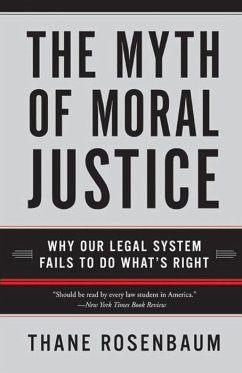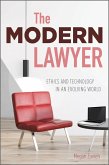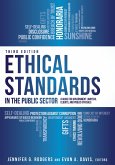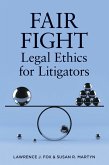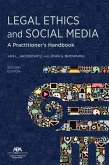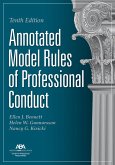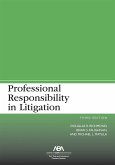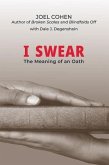We are obsessed with watching television shows and feature films about lawyers, reading legal thrillers, and following real-life trials. Yet, at the same time, most of us don't trust lawyers and hold them and the legal system in very low esteem.
In The Myth of Moral Justice, law professor and novelist Thane Rosenbaum suggests that this paradox stems from the fact that citizens and the courts are at odds when it comes to their definitions of justice. With a lawyer's expertise and a novelist's sensability, Rosenbaum tackles complicated philosophical questions about our longing for moral justice. He also takes a critical look at what our legal system does to the spirits of those who must come before the law, along with those who practice within it.
In The Myth of Moral Justice, law professor and novelist Thane Rosenbaum suggests that this paradox stems from the fact that citizens and the courts are at odds when it comes to their definitions of justice. With a lawyer's expertise and a novelist's sensability, Rosenbaum tackles complicated philosophical questions about our longing for moral justice. He also takes a critical look at what our legal system does to the spirits of those who must come before the law, along with those who practice within it.
Dieser Download kann aus rechtlichen Gründen nur mit Rechnungsadresse in A, B, BG, CY, CZ, D, DK, EW, E, FIN, F, GR, HR, H, IRL, I, LT, L, LR, M, NL, PL, P, R, S, SLO, SK ausgeliefert werden.

